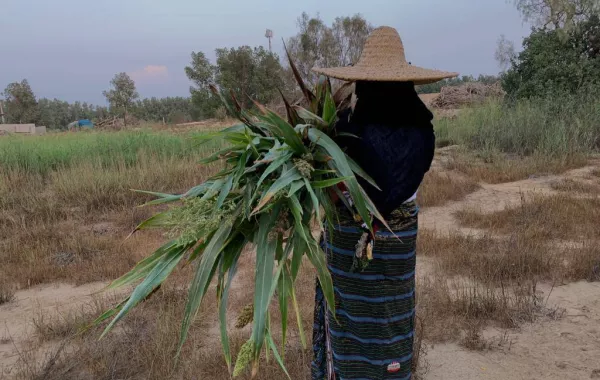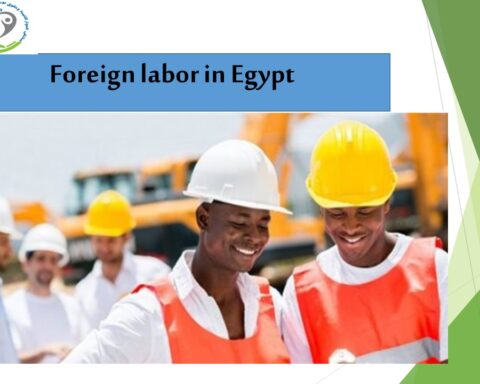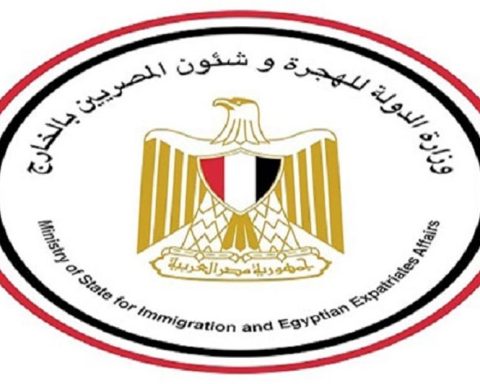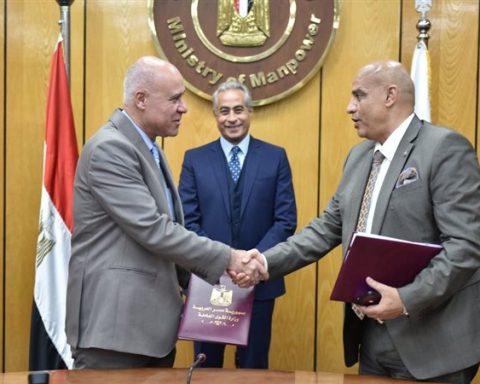On Sunday, 18 November 2024, the Forum for Dialogue Foundation for Development and Human Rights issued a policy paper on the economic empowerment of rural women and the state’s efforts to ensure their economic inclusion.
The paper addressed several key themes, including the challenges and obstacles faced by rural women in achieving economic empowerment. It also reviewed the National Strategy for the Empowerment of Women 2030 and clarified the state’s efforts to guarantee the economic empowerment of rural women.
The policy paper emphasized that empowering women and girls is a core component of the 2024 Sustainable Development Plan and an essential element in breaking the cycle of poverty, hunger, and malnutrition, thus achieving the Sustainable Development Goals. Therefore, empowering rural women is one of the most important drivers of social and economic progress and sustainable development.
In terms of challenges, the paper noted that rural women face multiple global challenges in the third millennium, such as globalization and the information revolution. They also face regional challenges such as development issues and the spread of democracy. Locally, cultural traditions, laws, and public policies present challenges that necessitate empowering women, supporting their participation in decision-making processes, building their capacities, raising awareness, and enabling self-fulfillment across all levels.
Regarding the state’s efforts to economically empower rural women, Egypt has implemented many projects and initiatives to ensure their economic and social empowerment. Key statistics include:
- Women account for 45% of all projects supported by the Micro, Small, and Medium Enterprises Development Agency (MSMEDA), with a total funding of 13.4 billion EGP up to the end of 2022.
- The state expanded microfinance opportunities directed at women. Women constituted 62% of total microfinance beneficiaries.
- The female unemployment rate declined to 16.8% in Q4 2020 compared to 24.8% in Q4 2014. The percentage of women in government/public sector jobs increased to 39.1% in Q4 2020, up from 38.6% in Q4 2014. Women holding bank accounts rose to 27% in 2020, compared to 14% in 2014.
- Regarding MSMEs directed at women: 61.6 thousand women benefited from the “Your Project” national initiative, representing 38% of total projects with funding of 3.8 billion EGP until February 2021.
- Women’s financial inclusion rate increased to 27%, and women’s ownership of transactional accounts rose to 47.5% by mid-2021. Women’s participation in the labor force reached 17.3% in 2022. Additionally, women represent around 50% of graduates from public and private universities.
- The first phase of the “Decent Life” initiative targeted 377 villages, which are among the poorest and most exposed to extremism and intellectual terrorism, with poverty rates of 70% or more, covering 756,000 families (3 million individuals) across 11 governorates.
Recommendations:
- Support small and micro-enterprises and encourage rural women to engage with loan programs to enhance their economic and social empowerment.
- Develop developmental strategies and policies for small businesses to enable rural women entrepreneurs and provide necessary services to ensure success.
- Prioritize education and vocational training for rural women to enable them to contribute to their family’s welfare and community development.
- Equip rural women with economic skills aligned with sustainable development goals.
- Enhance rural women’s skills to meet labor market demands and expand participation in small and medium projects.
- Eliminate illiteracy among rural women through expanded adult education and encourage enrollment in literacy programs.
- Encourage NGOs to allocate programs and services for rural women and their families.
- Improve cultural awareness through media campaigns aimed at training women in volunteer work and women-led initiatives.
- Launch awareness campaigns to overcome cultural and social norms that hinder women’s role in development.
- Promote home-based production as a flexible employment model for rural women to increase income and strengthen small business culture.








